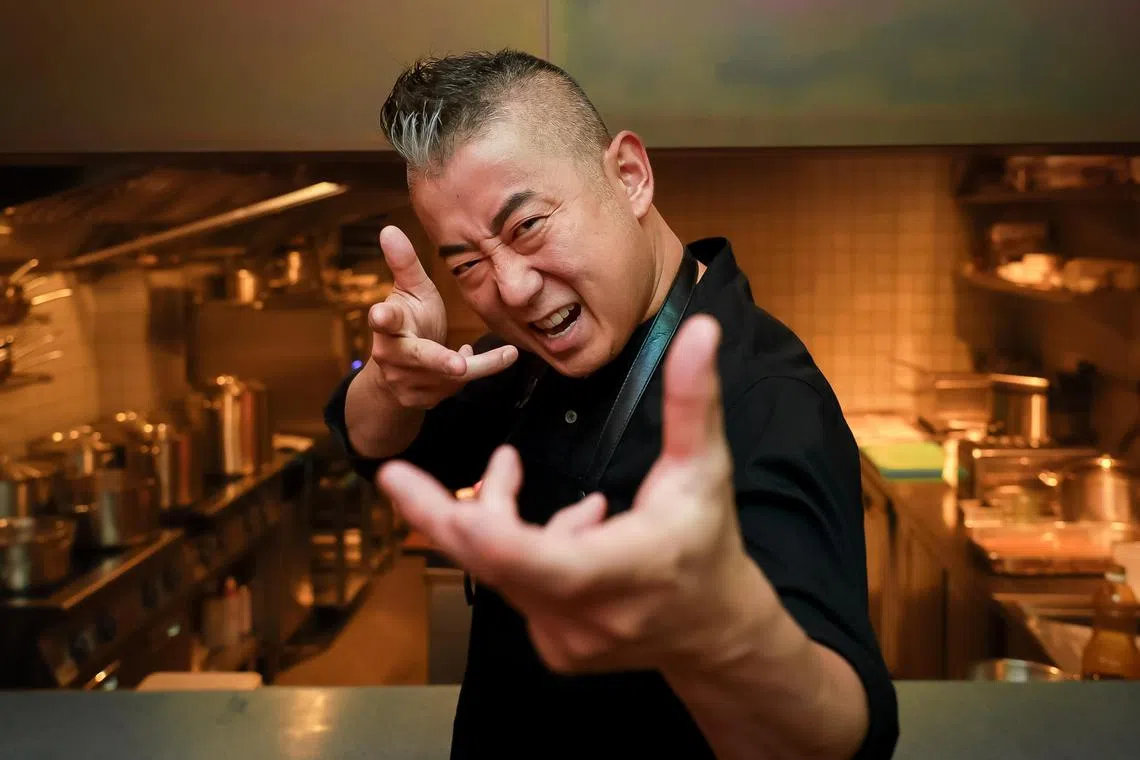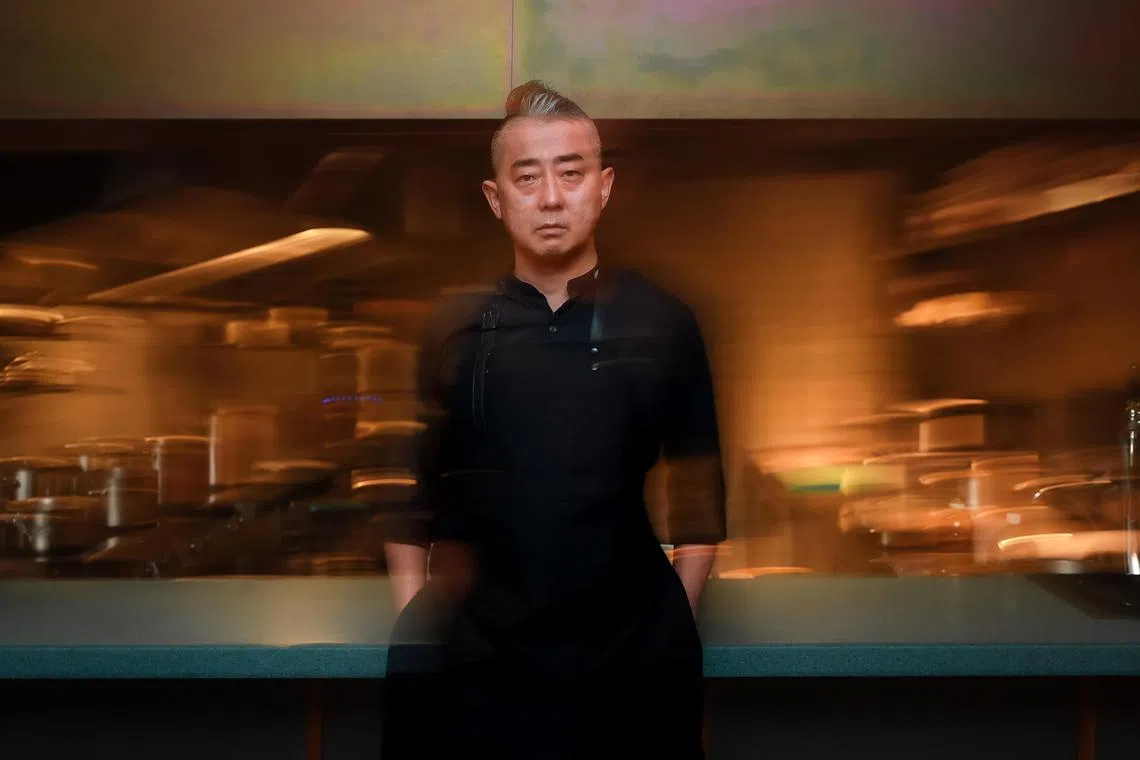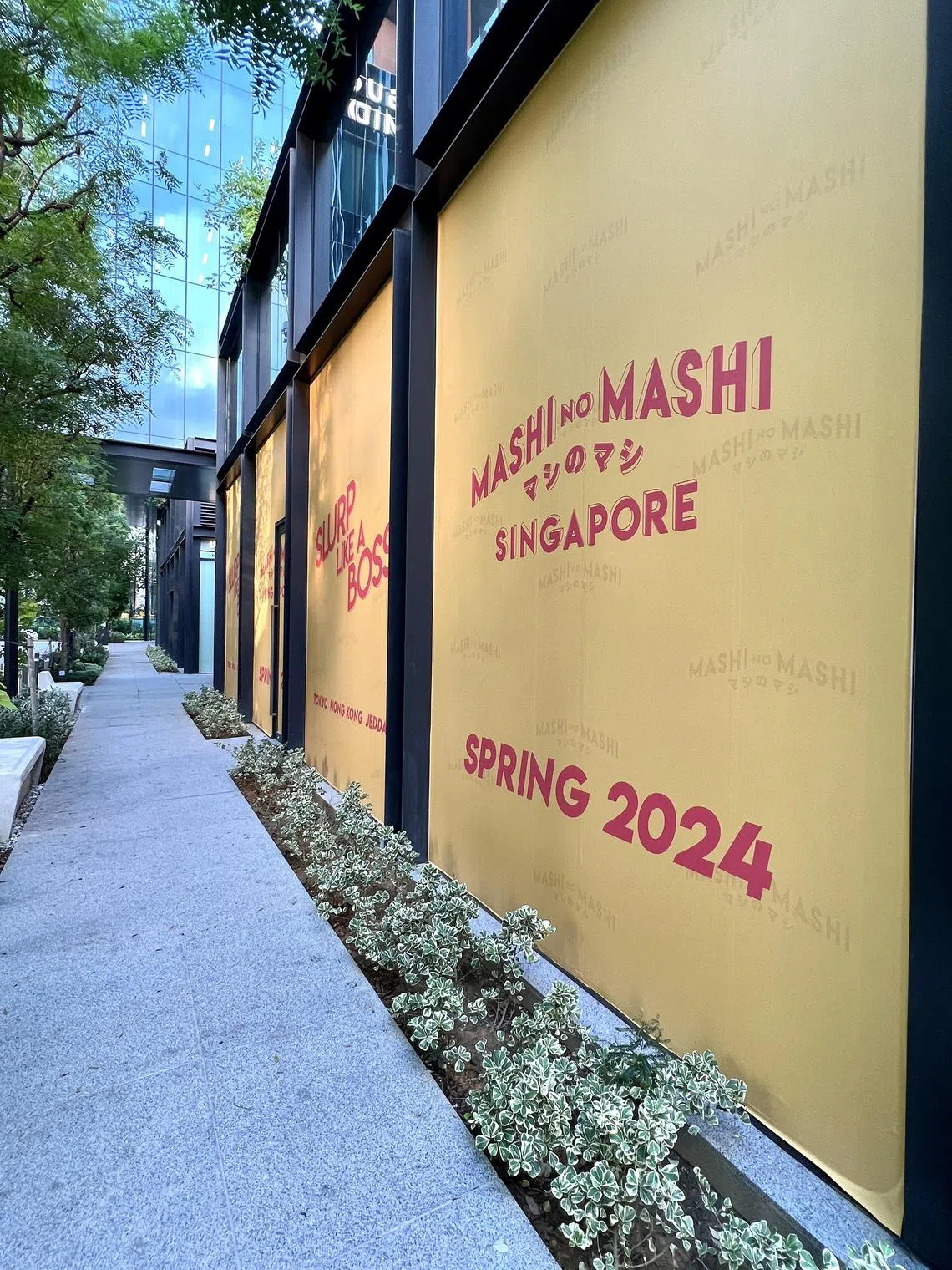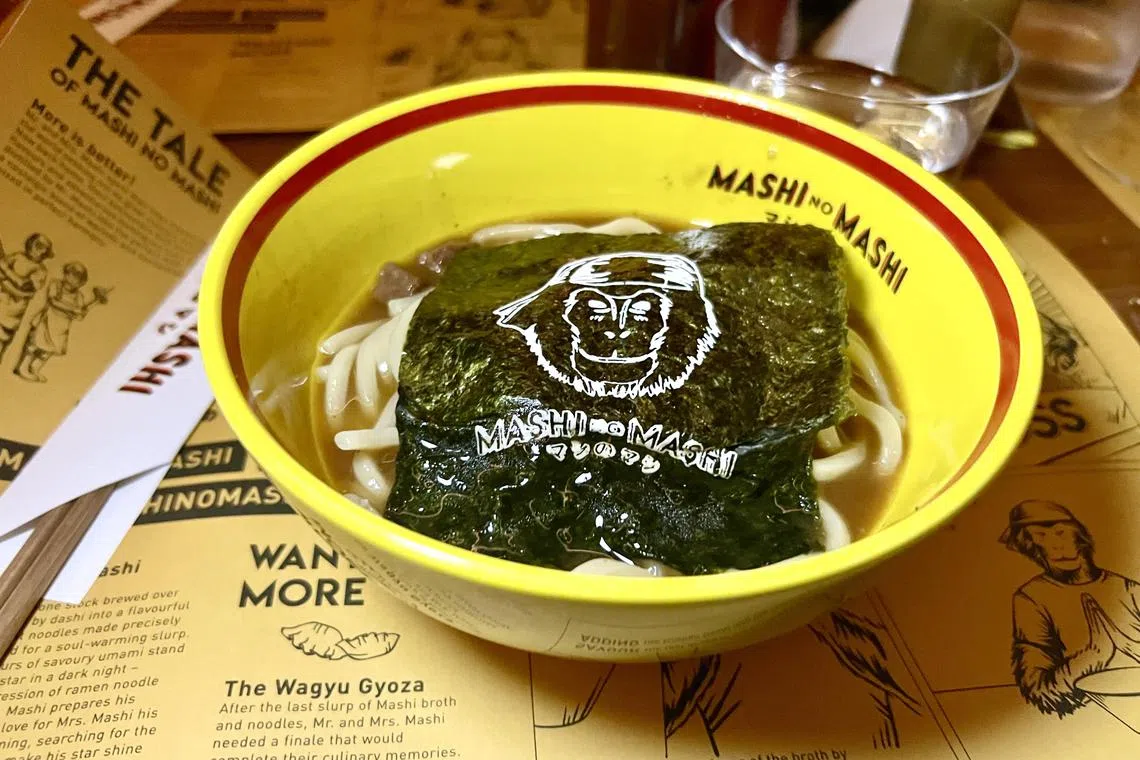Japan’s famed Wagyumafia to open Mashi No Mashi ramen brand in March in Bugis
Sign up now: Weekly recommendations for the best eats in town

Wagyumafia's founder and executive chef Hisato Hamada. The restaurant's ramen concept Mashi No Mashi is set to open in Bugis in March.
ST PHOTO: GAVIN FOO
SINGAPORE – While Japan’s famed members-only restaurant Wagyumafia may not be opening in Singapore any time soon, its ramen concept Mashi No Mashi is set to make a splash here when it debuts in Bugis in March.
The bright yellow hoarding is up for the 1,576 sq ft stand-alone 65-seat restaurant at the mixed-use development Guoco Midtown.
Mashi No Mashi, which means to eat more and more, is known for its signature massive wagyujiro ramen with Kobe beef bone broth, tsukemen and gyoza stuffed with Ozaki beef – accompanied by its line of hot sauce, Wagyusco.
The prized Ozaki beef comes from the wagyu cattle from the farm owned by Japanese farmer Muneharu Ozaki.
It is this Ozaki beef that set Wagyumafia’s charismatic chef-owner Hisato Hamada – with his signature steely gaze – on the path to what has become a successful beef export business on a global scale.
Singapore was the first country he exported beef to, and he lived here “on and off” from 2012 to 2015 to further develop the business.
The 46-year-old started Wagyumafia in 2016 and hosted its first pop-up that year in Singapore. Since then, the Wagyumafia brand – best known for its extravagant wagyu sandwiches – now has 14 restaurants in Japan, four in Hong Kong and three in Saudi Arabia.
Wagyumafia expanded to Hong Kong in 2018, followed by Mashi No Mashi and grill concept Yakinikumafia in subsequent years.
Mashi No Mashi, which opened in Hong Kong in 2019, now has outlets in Tokyo and Jeddah.
At a recent Wagyumafia pop-up experience in Singapore, invited guests had a taste of Ozaki beef in not only the gyoza, but also in Hamada’s robust version of a peppery bak kut teh broth.

Wagyumafia's chef-owner Hisato Hamada used to live in Singapore for three years.
ST PHOTO: GAVIN FOO
It was a prelude to some of his dishes at Mashi No Mashi here, one of them being a wagyu bak kut teh – partly a nod to his favourite local dish, and also inspired by his good friend and local film-maker Eric Khoo, whose 2018 film Ramen Teh is about ramen and bak kut teh.
Diners also had a sampling of wagyujiro, a rich and flavour-packed Kobe beef bone broth with thick and al dente noodles topped with a sheet of seaweed with Mashi No Mashi’s monkey logo.
The chef is also working on a wagyu Hokkien mee and wagyu laksa.
Prices for the menu in Singapore have yet to be confirmed.

The hoarding for Mashi No Mashi at Guoco Midtown.
ST PHOTO: EUNICE QUEK
Besides ramen, he is also developing a cocktail menu with his own version of a Singapore Sling.
On launching Mashi No Mashi in Singapore instead of Wagyumafia, he says: “Singapore is all about street food. And I want to bring in my favourite street food, which is ramen.
“Because I love Singapore so much, I didn’t want to come unprepared. I was waiting for the right time.”
It was also about getting the right partner, whom he found in Mr Paul Ng, now Mashi No Mashi’s franchise owner here. Mr Ng, 57, a former restaurateur, met Hamada in Jakarta through mutual friends in April 2023.
A few months later, Mr Ng went to Tokyo to try his food and eventually convinced Hamada to bring the brand here.
Mr Ng, who has 37 years of experience in the food and beverage industry, does not rule out eventually opening Wagyumafia in Singapore as well.
Up next for Hamada in 2024 is yet another Wagyumafia project, which will operate at the penthouse of the upcoming Nagasaki Stadium City. The large complex houses a stadium, hotels and commercial facilities.

A sampling of wagyujiro with Kobe beef bone broth and thick noodles topped with a sheet of seaweed.
ST PHOTO: EUNICE QUEK
Despite his busy schedule, he plans to visit Singapore at least four times a year, just as he used to in the past for holidays.
He says: “Singapore is my hideaway from Tokyo. It is my nest and where my soul rejuvenates. That’s why I didn’t open here, even though I love this country and everyone said I have to. I didn’t want to work.”
But when Mashi No Mashi finally opens, do not expect to see Hamada slaving over the counter.
“I created this concept for me to have my ramen. So you will see me, not in my kitchen, but on the other side, having ramen,” he adds, laughing.



